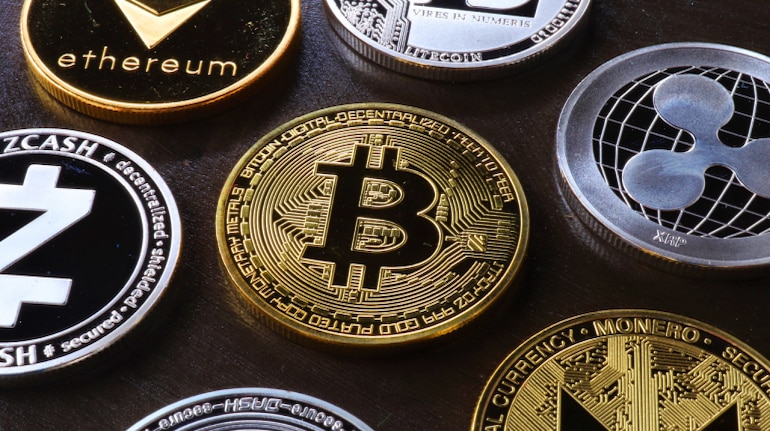



The Indian government has been criticised for not making its stance on cryptocurrencies public. On the other hand, the Reserve Bank of India (RBI) could not have been more vocal in its opposition to crypto.
After what seemed an age, the government in mid-2022 revealed the reasons behind its hesitation to announce laws to regulate domestic crypto activities; after all, it is, by nature, a concept that traverses borders and jurisdictions. As such, it made little sense in banning crypto – assuming the RBI got what it wanted – when other countries did little to prevent its proliferation.
The first step, then, had to begin with a global discussion on crypto and the risks from it. So it is perhaps to the government's credit – as well as the RBI's – that visible progress has been made on the international stage in the crypto space, with India utilising its G20 Presidency to force a discussion on the subject in an attempt to reach some sort of agreement on minimum regulations.
With the G20 Leaders' Summit in New Delhi on September 9 and 10, Moneycontrol answers the key questions on what has been done so far, where the discussions stand, and what lies ahead.
Creating consensus on concerns
Perhaps India's biggest contribution to the global crypto space, irrespective of what finally happens at the Leaders' Summit in September, is vehemently voicing concerns about these currencies.
"Till last year, most of the work happening in the international arena was about managing risks to the financial sector. The Indian Presidency brought the focus on macroeconomic risks," Economic Affairs Secretary Ajay Seth said on July 18 in Gandhinagar at the conclusion of the meeting of G20 Finance Ministers and Central Bank Governors.
The RBI is clearly happy, with Governor Shaktikanta Das particularly pleased that countries and multilateral organisations have broadly come around to share what the Indian central bank has been saying "for more than one year about the macro-financial and stability implications, and the huge risks involved in cryptocurrencies".
To be fair to the RBI, it has been actively warning against cryptocurrencies for more than just the last couple of years. In fact, it started doing that nearly 10 years ago! Its first public warning related to the "potential financial, operational, legal, customer protection, and security-related risks" from virtual currencies, such as Bitcoins.
Has India been successful in raising awareness among the world's largest nations about the risks of cryptocurrencies? Definitely, with the RBI governor disclosing back in February that some members of the G20 were of the opinion that a complete ban on crypto should be considered.
Body of literature
A key aspect of the G20 discussions on crypto is the work done by multilateral agencies.
Back in February, the International Monetary Fund (IMF) published a note for the G20 on the macro-financial implications of crypto assets. This was followed by high-level recommendations by the Financial Stability Board (FSB) for the regulation, supervision, and oversight of crypto-asset activities and markets and 'global stablecoin arrangements'.
The Bank for International Settlements (BIS), too, has submitted a report outlining the key elements and risks of the crypto ecosystem.
Putting it all together is the Indian Presidency's guidance note on crypto, which was submitted and discussed at the meeting of Finance Ministers and Central Bank Governors earlier this month in Gandhinagar.
What remains are the two most important pieces of documents: a synthesis paper jointly written by the IMF and the FSB and another on the way forward.
"The thinking is that there should be a bare minimum – the two high-level recommendations that have come said there should be a bare minimum; beyond that, if any jurisdiction wants to be more stringent based on its own circumstances, it should be doing so. But nobody should go below the bare minimum," Seth told reporters in Gandhinagar.
Both the synthesis paper and the document spelling out the way forward will be discussed at the Leaders’ Summit.
What next?
There is, of course, no way to say what will finally happen at the Leaders' Summit in September.
"Unless the discussions get to some kind of crystal-clear thoughts, it will be very difficult for me to guess now as to what kind of regulations they talk about. So we will have to wait until the next meeting, the Summit, and post the Summit, when we go to Marrakesh," Finance Minister Nirmala Sitharaman said on July 18.
The Moroccan city of Marrakesh will host the annual meeting of the World Bank Group and IMF from October 9 to October 15.
Hopes, however, are high, with India expecting some sort of an outcome to be reached on crypto at the Leaders' Summit. This "outcome" could range from as little a recognition or appreciation for the work done by the Indian Presidency, to even perhaps a roadmap.
"If that roadmap is helpful, it can be carried forward to the next Presidency and it can be decided what is to be done: regulate or have a template. If there is a template, it should be about who does what, the implementation and legislative requirements, et cetera," Moneycontrol had reported on July 16, quoting a source aware of the discussions.
Even if there is no consensus on a set of rules to regulate crypto or a roadmap for their implementation, it would not constitute a failure for India. After all, the G20 forum is "not about deliverables" and "deals".
"It is about building institutions and taking the discourse forward," Seth had said in Gandhinagar. India, undoubtedly, has taken the crypto discourse forward.
Discover the latest Business News, Sensex, and Nifty updates. Obtain Personal Finance insights, tax queries, and expert opinions on Moneycontrol or download the Moneycontrol App to stay updated!
Find the best of Al News in one place, specially curated for you every weekend.
Stay on top of the latest tech trends and biggest startup news.